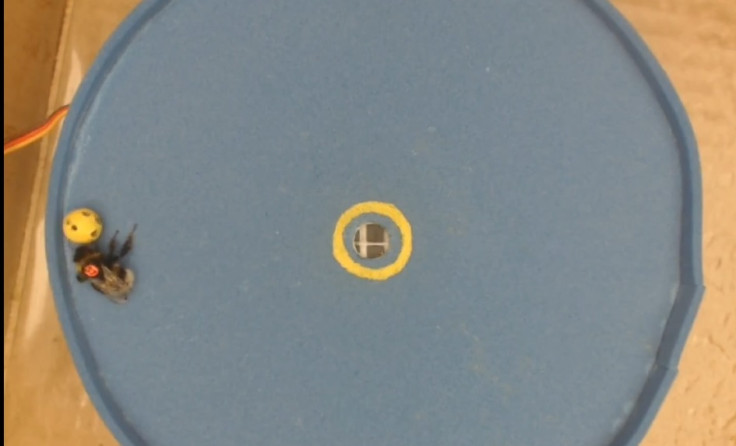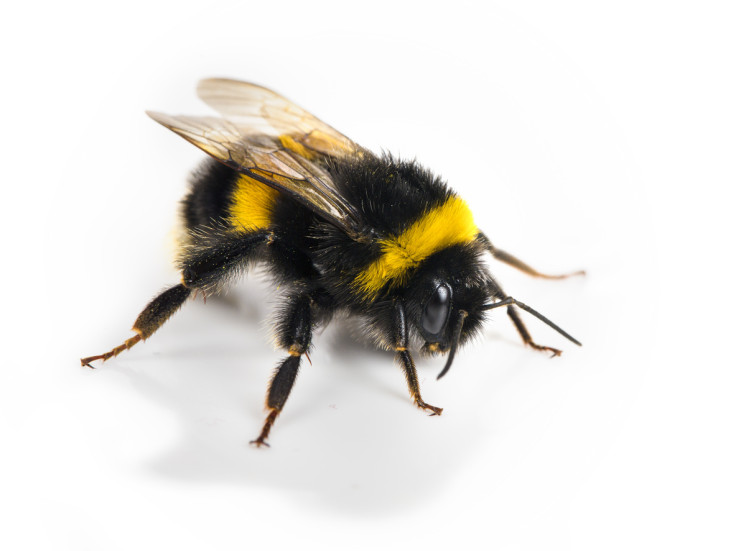Scientists train bumblebees to score goals with tiny footballs for treats
Bees show unprecedented learning abilities in a test of their cognitive limits.
Bumblebees have been trained to move tiny footballs to score goals in order to get a reward. Videos show how they use their little legs to roll the ball into a circular target and hold it there awaiting a treat. And it is absolutely adorable.
"We wanted to explore the cognitive limits of bumblebees by testing whether they could use a non-natural object in a task likely never encountered before by any individual in the evolutionary history of bees," said Dr Clint Perry, joint lead author of the study published in Science.
The team, from Queen Mary University of London, was building on previous research that showed how bumblebees could complete a range of cognitive tasks but these were all closely related to their natural foraging behaviour.
In the latest study, they wanted to see if the bees could learn an entirely new behaviour. To do this, they first trained insects to find a ball on a platform for a reward (a sucrose solution). Next, they were trained to move the ball to a specific location.
They trained different bees in different ways. Some observed another bee that had already been trained, others were shown how to move the ball with a magnet moving it from beneath, while a third had no demonstration – the ball and reward were already at the centre.
Findings showed the first group which learned through observation were fastest at picking up the task. But not only did they imitate the behaviour, they built on it to improve the technique.

Two balls were placed on the platform. The trained bee knew the one closer was glued down so didn't attempt to move it. However, the bee observing did not know this, so when it went to move the ball itself, it went for the one closer to the goal.
Joint lead author Olli J Loukola explained: "The bees solved the task in a different way than what was demonstrated, suggesting that observer bees did not simply copy what they saw, but improved on it. This shows an impressive amount of cognitive flexibility, especially for an insect."
They said their findings have major implications for bee behaviour. "Such unprecedented cognitive flexibility hints that entirely novel behaviours could emerge relatively swiftly in species whose lifestyle demands advanced learning abilities, should relevant ecological pressures arise," the study concluded.
Co-author Lars Chittka said: "Our study puts the final nail in the coffin of the idea that small brains constrain insects to have limited behavioural flexibility and only simple learning abilities."

© Copyright IBTimes 2024. All rights reserved.






